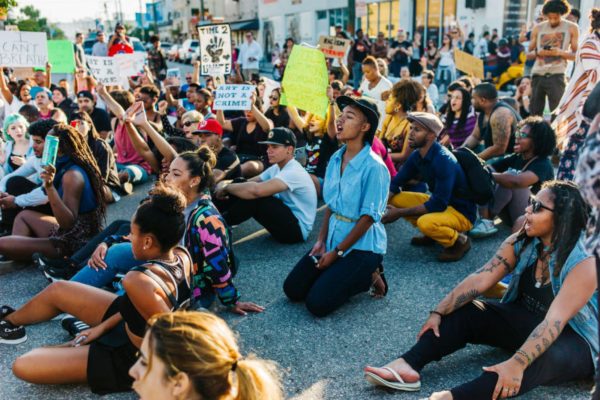I was struck by the juxtaposition of two recent news topics. First, there were many stories about protests on the campus of the University of California, Berkeley over “Free Speech Week.” And then it seemed every news outlet was talking about President Donald Trump’s comments about NFL players kneeling or standing arm-in-arm during the national anthem at football games.
In each case, individuals with a political message engaged in peaceful activities that aimed to provoke a strong reaction. And they were effective because they aimed at a protected value of the recipients of the message.
Psychologists have demonstrated that when people have a protected value, they react with moral outrage when that value is transgressed even slightly. Even discussing potential tradeoffs on these issues can be seen as taboo.
The organizers of Free Speech Week wanted the opportunity to discuss critiques of Islam, social justice, political correctness and feminism. These issues are protected values for many people, and so discussing them publicly at an elite institution is viewed by many as providing support for a taboo tradeoff.
Similarly, the flag and the national anthem are central to many people’s identity as Americans, as is patriotism a protected value. Protesting symbols is seen as transgressing this value and creates outrage.
Generally speaking, it is a bad idea to trample on someone’s protected values. Moral outrage does not generally put people in a frame of mind to engage in a conversation that might ultimately influence their opinions.
Indeed, most protesters do not start with protected values. They start by engaging with the media, using the political system and the courts to seek outcomes consistent with their views, and working in communities to create change. Only when those avenues have been exhausted do people look to do something more visible and potentially inflammatory.
When someone transgresses one of your protected values in a nonviolent act of protest, you should recognize that you will respond with moral outrage. Your first reaction is going to be to denounce the protesters and to dismiss their cause because of their methods.
As a nation, Americans need to resist this temptation. When someone is angry enough, frustrated enough and driven enough to aim at a protected value as a means of protest, you should start by paying attention. After all, by deliberately transgressing one of your protected values, the protesters have used the biggest stick available to a nonviolent protester. Of course you disagree with their methods — the protest was designed so that you would disagree.
Many of us would be wise to ask two questions. First, why does the protest bother you so much? Second, independent of their methods, is there something in the issues raised by the protesters that is important?
The first question is important, because you want to see whether you can separate the medium from the message. Nonviolent protest can have an impact only if people are paying attention. You may realize after thinking about it that there was no other way for a group to get your attention then to attack an idea that you hold dear. In that case, while you may be frustrated by the methods, you may still want to think about the message.
The second question aims at whether you believe that you should be influenced by the protest. Here, the answer is more complicated. There may be some views that you are unwilling to adopt, no matter how hard you think about them. However, even for your protected values it can be valuable to understand why you believe as you do. You might even find that — on further reflection — the protesters had a point.
Ultimately, though, the only way to encourage nonviolent protest is to recognize that it is going to attack our most deeply held values.
Art Markman is a professor of psychology at The University of Texas at Austin and founding director of the Human Dimensions of Organizations program. He is the author of several books including “Brain Briefs” and co-host of the radio show and podcast “Two Guys on Your Head.”
A version of this op-ed appeared in USA Today, Dallas Morning News, Abilene Reporter News, San Antonio Express News, and The Tennessean.
To view more op-eds from Texas Perspectives, click here.
Like us on Facebook.




